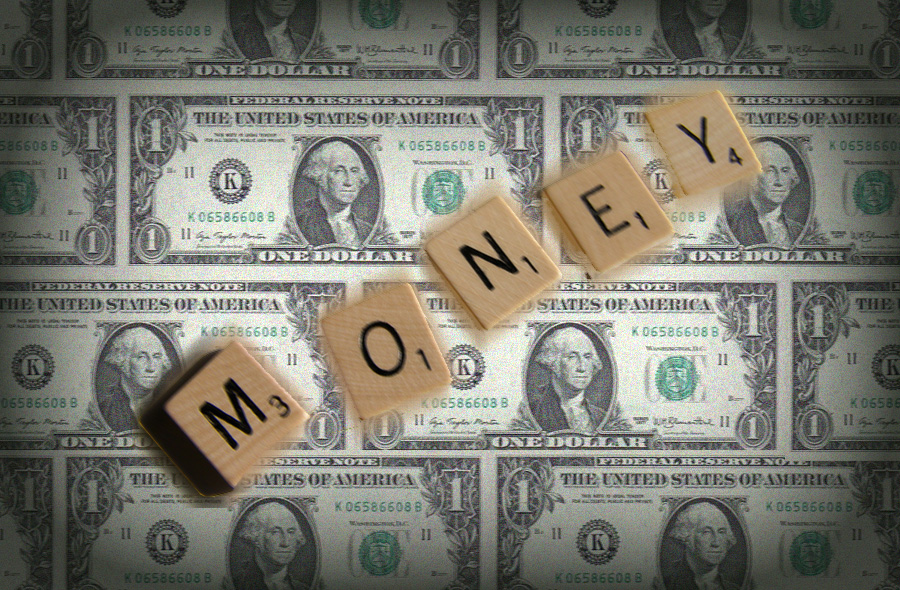
When I was in my early 20s, I was told by a very wealthy man and leading entrepreneur that until we can handle a gain or loss of $10 million dollars with complete equanimity, we cannot truly call ourselves decamillionaires.
I did not quite grasp his insightful message at the time, but now, after many more years of financial experience, I have come to understood what his savvy financial wisdom meant. What he was teaching me was a general rule of human behavior, – which I now have termed the 10 percent rule.
We can handle fluctuations of approximately 10 percent in our net worth with little or no emotional reactions and no deviations from our financial wealth building strategies. But once we have volatilities, or gains and losses that exceed the 10 percent rule, we are vulnerable to foolish emotional reactions and strategic deviations. To give a clearer example of this 10 percent rule, imagine the following age-evolving scenario:
If we are 20 years of age and we have a net worth of $1,000 and we gained or lost $400, we would probably feel elated or depressed and deviate from our financial strategy.
If we are 30 years of age and we have a net worth of $10,000 and we gained or lost $4,000, we would probably feel elated or depressed and deviate from our financial strategy.
If we are 40 years of age and we have a net worth of $100,000 and we gained or lost $40,000, we would probably feel elated or depressed and deviate from our financial strategy.
If we are 50 years of age and we have a net worth of $1,000,000 and we gained or lost $400,000, we would probably feel elated or depressed and deviate from our financial strategy.

If we are 60 years of age and we have a net worth of $10,000,000 and we gained or lost $4,000,000, we would probably feel elated or depressed and deviate from our financial strategy.
If we are 70 years of age and we have a net worth of $100,000,000 and we gained or lost $40,000,000, we would probably feel elated or depressed and deviate from our financial strategy.
If we are 80 years of age and we have a net worth of $1,000,000,000 and we gained or lost $400,000,000, we would probably feel elated or depressed and deviate from our financial strategy.
But, if we are 20 years of age and we have a net worth of $1,000 and we gained or lost $100, we would probably maintain equanimity and remain steady with our financial strategy.
If we are 30 years of age and we have a net worth of $10,000 and we gained or lost $1,000, we would probably maintain equanimity and remain steady with our financial strategy.
If we are 40 years of age and we have a net worth of $100,000 and we gained or lost $10,000, we would probably maintain equanimity and remain steady with our financial strategy.
If we are 50 years of age and we have a net worth of $1,000,000 and we gained or lost $100,000, we would probably maintain equanimity and remain steady with our financial strategy.
If we are 60 years of age and we have a net worth of $10,000,000 and we gained or lost $1,000,000, we would probably maintain equanimity and remain steady with our financial strategy.
If we are 70 years of age and we have a net worth of $100,000,000 and we gained or lost $10,000,000, we would probably maintain equanimity and remain steady with our financial strategy.
If we are 80 years of age and we have a net worth of $1,000,000,000 and we gained or lost $100,000,000, we would probably maintain equanimity and remain steady with our financial strategy.
Once we have accumulated a net worth that exceeds 10 times the amount of the market volatilities or percentages of any gains and losses we have allowed for our total investments, we are able to dampen our emotional reactions and maintain our equanimity and aim. In essence, we can handle fluctuations of approximately 10 percent (gains or losses) without foolish emotional reactions, where we don’t buy at the top nor sell at the bottom. This varies with our individual risk tolerance, but when our risk tolerance is carefully analyzed, this 10 percent scenario is found to still hold commonly true. So when we have the equivalent of $100,000,000 in net worth, we can handle a gain or loss of $10,000,000 without too much reaction. This is also why an adequately proportioned cushion of liquidity is prudent. Anything we emotionally react to tends to run us. Anything we do not react to we tend to manage wisely or run well. We are only a master to that which we have transcended our emotional reactions to.
So, if we have $100,000,000 net worth in our investment portfolio and the markets or our businesses rise that year and we end up with $110,000,000, we will probably not detour from our investment strategy and will probably maintain some degree of equanimity and steadiness of aim. But if our investments or businesses suddenly jumped up to $140,000,000, that year we would probably become a bit elated and greedy and possibly respond foolishly and react by over-leveraging our next year’s investments by borrowing other people’s money while the market is possibly above the mean. The dopamine rush from the reward the year before could blind us from prudent management of our portfolio. The same holds for a loss of $40,000,000. Again, we might foolishly react by urgently selling out at the bottom below the mean due to fear.
The essence of my message is that we are wise to have a built-in governing system and possibly an optional market insurance strategy in place for handling volatilities greater than our risk tolerance, or 10 percent, before allowing our emotions to run us wild and allowing them to erode our financial returns. Immediate gratification and emotions can cost us, and patient, long-term strategies and steady aims can pay.

